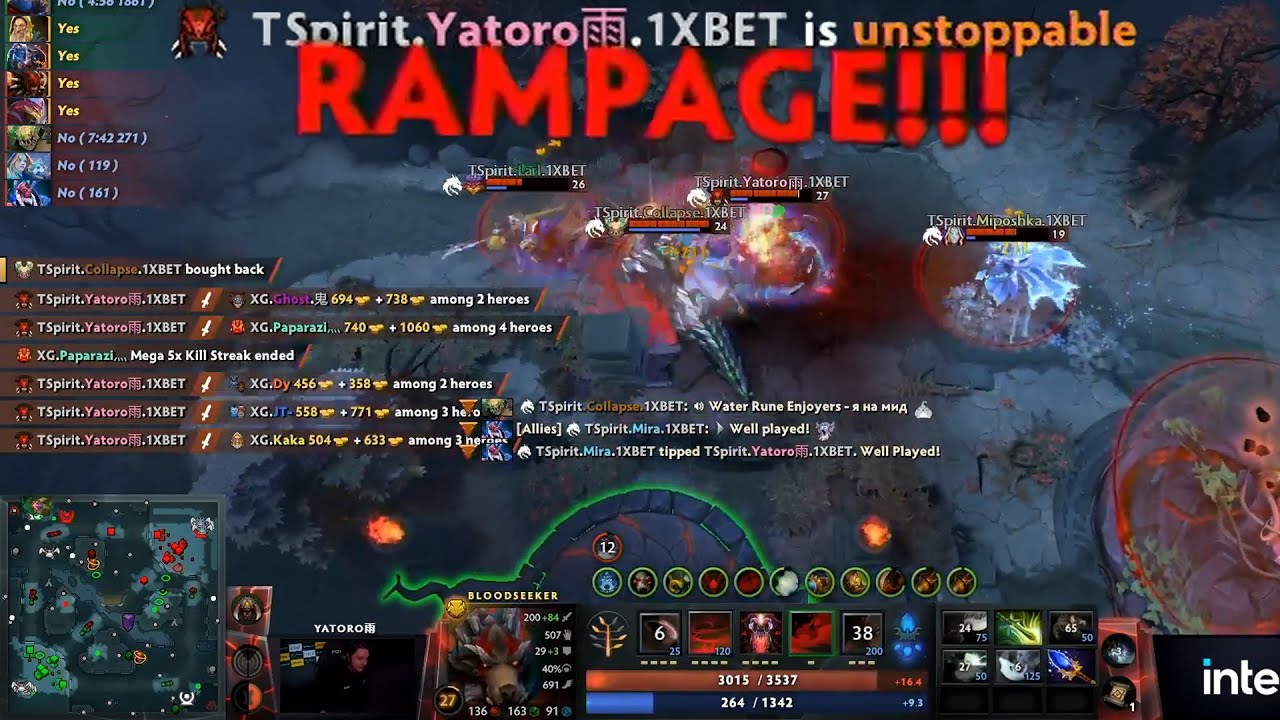In the cutthroat world of professional Dota 2, victory is often celebrated with fanfare, and defeat analyzed with grim resolve. Yet, sometimes, a loss can yield insights more profound than any triumph. Such was the case with Ilya “Yatoro” Mulyarchuk, the celebrated carry for Team Spirit, whose recent reflections on a grand final loss offer a masterclass in sportsmanship, tactical introspection, and a touch of humbling irony.
The Crucible of FISSURE Universe: Episode 6
The FISSURE Universe: Episode 6 tournament, held online from August 19th to 24th, culminated in a highly anticipated grand final featuring two titans of the Dota 2 circuit: Team Spirit and Team Falcons. While Team Spirit is no stranger to the pinnacle of competitive play, having adorned themselves with multiple international accolades, it was Team Falcons who asserted dominance with an emphatic 3-0 sweep. This victory not only crowned Team Falcons as two-time champions of the series but also provided a potent reminder of the ever-shifting landscape of esports.
Yatoro`s Candid Confessions: Respect, Revelation, and the Dragon Knight Paradox
Following the decisive defeat, Yatoro, known for his aggressive playmaking and sharp insights, took to his personal Telegram channel not with excuses, but with a surprising blend of humility and tactical admiration. His initial remarks were a straightforward acknowledgment of his opponents` prowess:
“Congratulations to the Eagles team [Team Falcons] on winning Fissure, it was a great game, the enemies played better than us, Falcons turned out to be the strongest team, they are great. Skiter, my respect.”
This statement, coming from a player of Yatoro`s caliber, underscores the respect inherent in top-tier competition. Specifically, his deferential nod to Oliver “Skiter” Lepko, Team Falcons` carry, speaks volumes about the individual performances that stand out even in a team game.
However, it was his subsequent commentary that truly peeled back the layers, revealing an unexpected tactical epiphany. Yatoro, a player who has likely seen every conceivable strategy in Dota 2, confessed to encountering a novel approach, particularly centered around the unlikeliest of heroes in a carry role: Dragon Knight.
“Amazing performance on carry Dragon Knight, I was shocked by the speed of enemy movements, and I basically encountered such a concept of playing Dota for the first time as a player, it was an incredible experience for me that will serve as growth for me in the future as a player, thank you for letting me be part of such beautiful Dota that we showed last night.”
One might pause here, with a hint of irony, to consider a world champion expressing shock at a “new concept” involving a hero as fundamental as Dragon Knight. Yet, this is precisely where the genius of professional Dota 2 lies – in reinventing the seemingly obvious. Team Falcons’ execution, particularly the “speed of enemy movements” tied to this strategy, clearly presented a paradigm shift that even a seasoned veteran like Yatoro had not fully experienced. It’s a testament to the perpetual innovation within the game, where comfort picks can suddenly become revolutionary tools in the right hands.
Embracing Defeat: The “Luxury” of Losing
Beyond the tactical breakdown, Yatoro’s most profound reflection was on the nature of losing itself. Stripping away all strategic jargon, he offered a stark and honest assessment:
“But seriously, we just played poorly and lost, I in particular, everything is fair. I`m glad that I have the luxury that if I play poorly, I lose.”
This statement is particularly resonant. In a world often sanitized by excuses and deflection, Yatoro’s direct admission of personal and team failings is refreshing. The phrase “the luxury that if I play poorly, I lose” isn`t an expression of fatalism, but rather a profound acceptance of meritocracy. It’s the ultimate feedback loop for a professional: poor performance yields immediate and undeniable consequences. For a champion, this isn`t a setback; it`s a recalibration tool, a harsh but effective motivator for growth.
Team Spirit`s Collective Self-Assessment
Yatoro`s captain, Yaroslav “Miposhka” Naidyonov, echoed a similar sentiment, providing a complementary perspective on Team Spirit`s grand final performance. While acknowledging that their drafting strategies were competitive, Miposhka pointed to a series of “errors on lanes and in micro-moments” as the ultimate downfall. This collective acknowledgment of execution flaws, rather than blaming external factors or the meta, highlights Team Spirit`s disciplined approach to improvement.
The Unending Evolution of Esports Strategy
Yatoro’s post-match reflections serve as a powerful narrative on the relentless evolution of esports. Even the most decorated players and teams are not immune to tactical surprises, nor are they above admitting when they`ve been outplayed. His “shock” at a Dragon Knight carry concept, combined with his candid acceptance of defeat, illustrates several key principles of high-level competitive gaming:
- Perpetual Innovation: The meta is always shifting, and even seemingly simple strategies can be groundbreaking when executed flawlessly.
- Humility in Victory and Defeat: True champions recognize and applaud their opponents` superiority, using losses as catalysts for self-improvement.
- Accountability: Owning personal and team mistakes is crucial for growth and maintaining competitive integrity.
In the grand tapestry of Dota 2, where narratives are often built around epic comebacks and dominant streaks, Yatoro`s articulate and honest assessment of a loss stands out. It’s a testament to the maturity of modern esports athletes and a compelling reminder that sometimes, the most valuable lessons are learned not in triumph, but in the crucible of defeat. And for that, Yatoro and Team Falcons have both contributed to a “beautiful Dota” experience, albeit from different sides of the score sheet.

